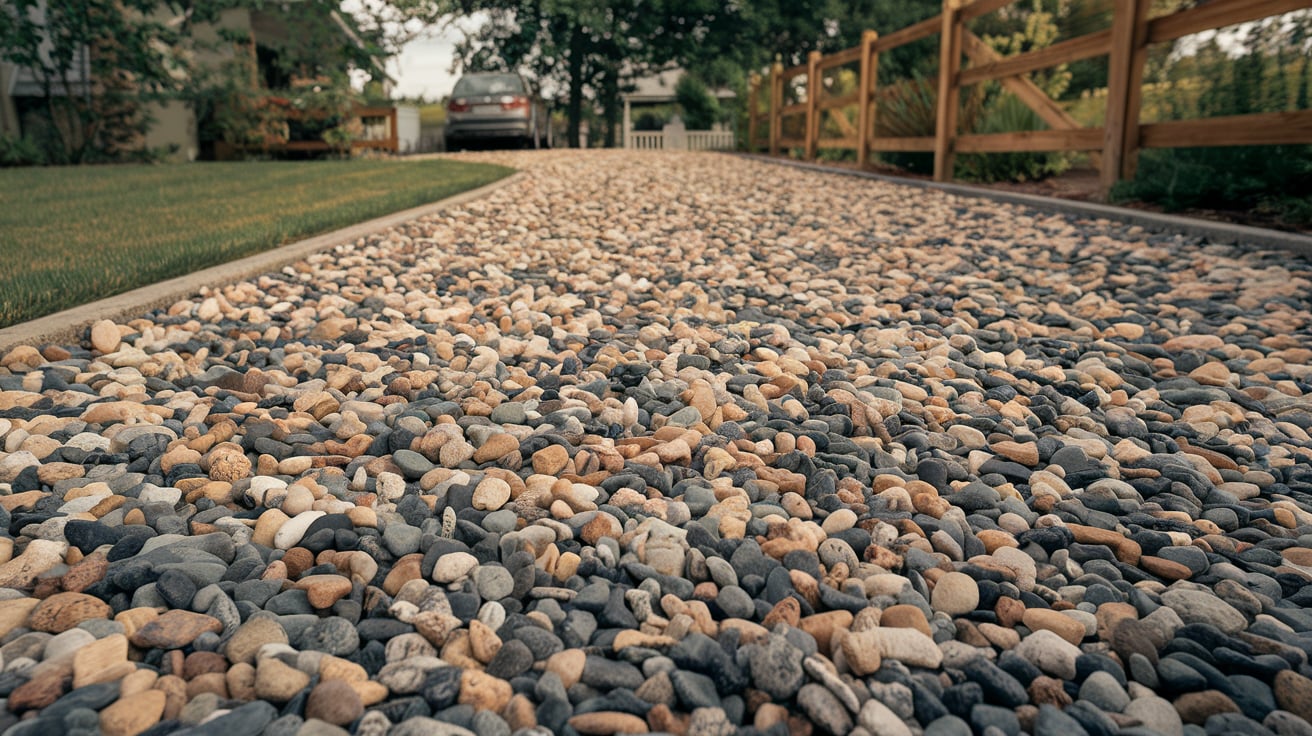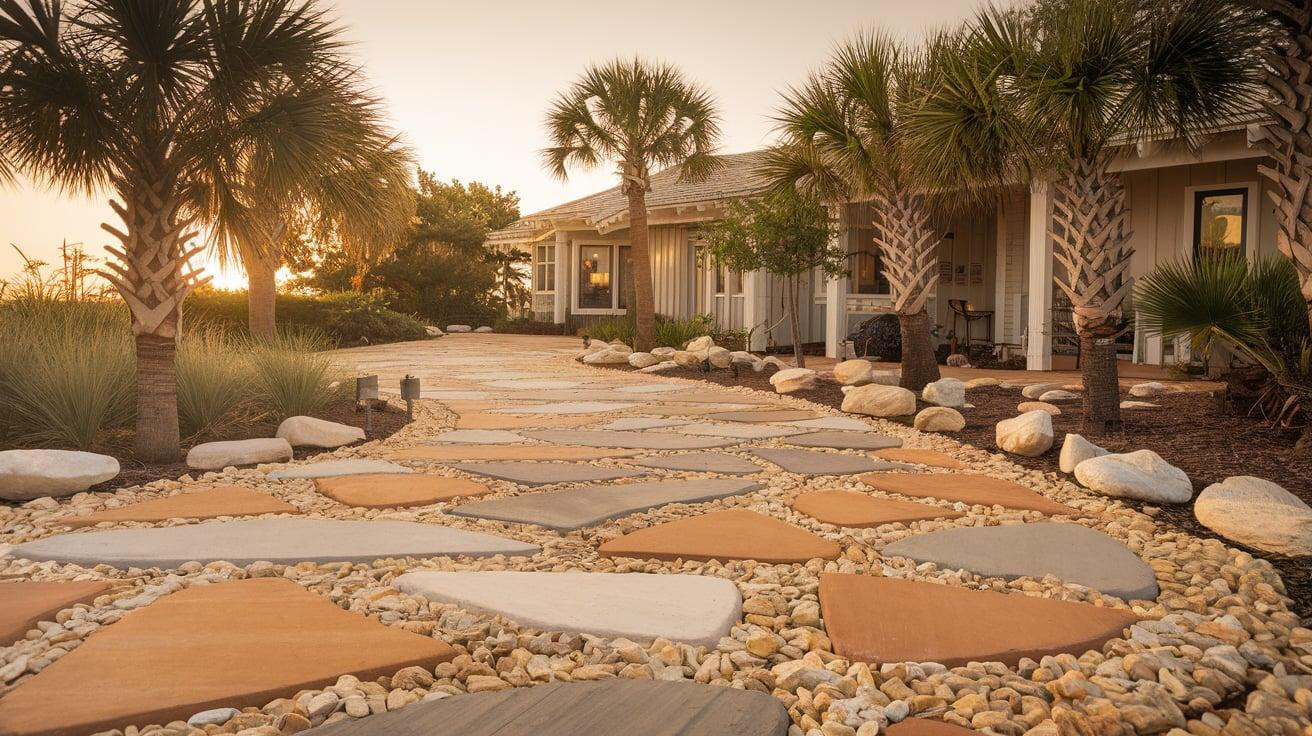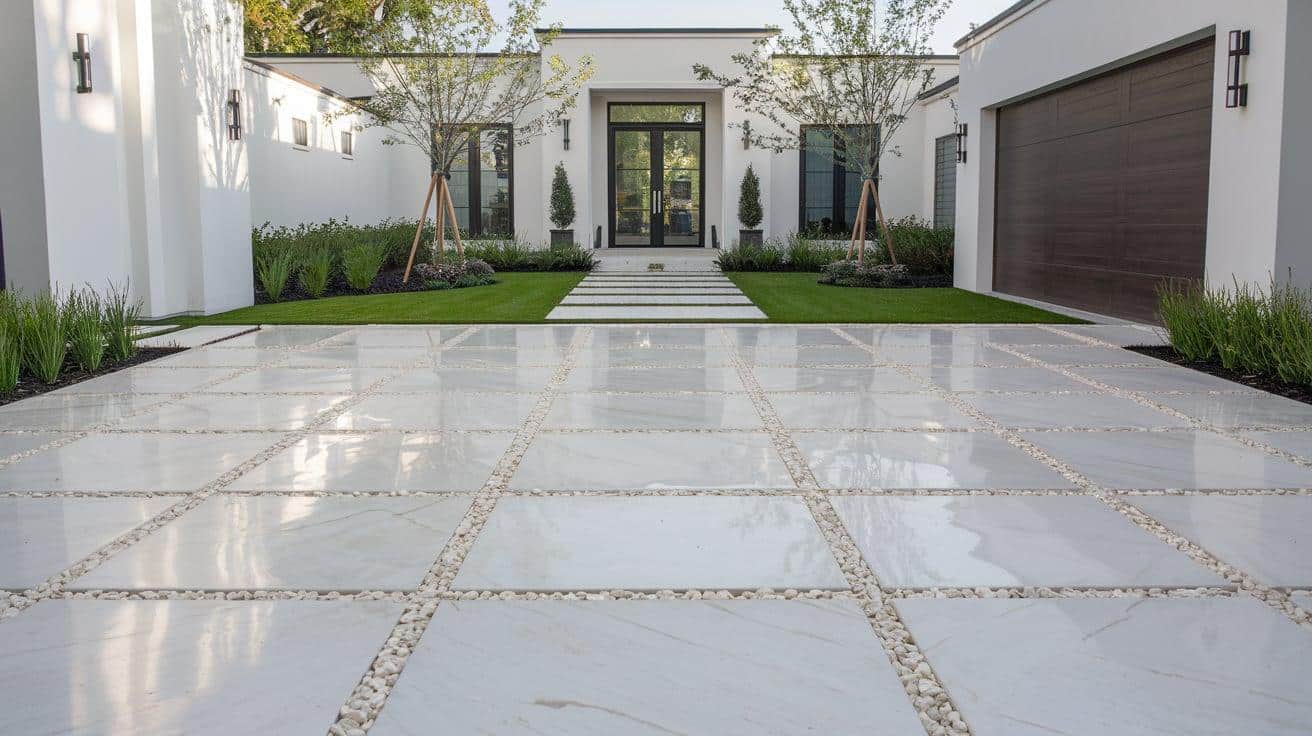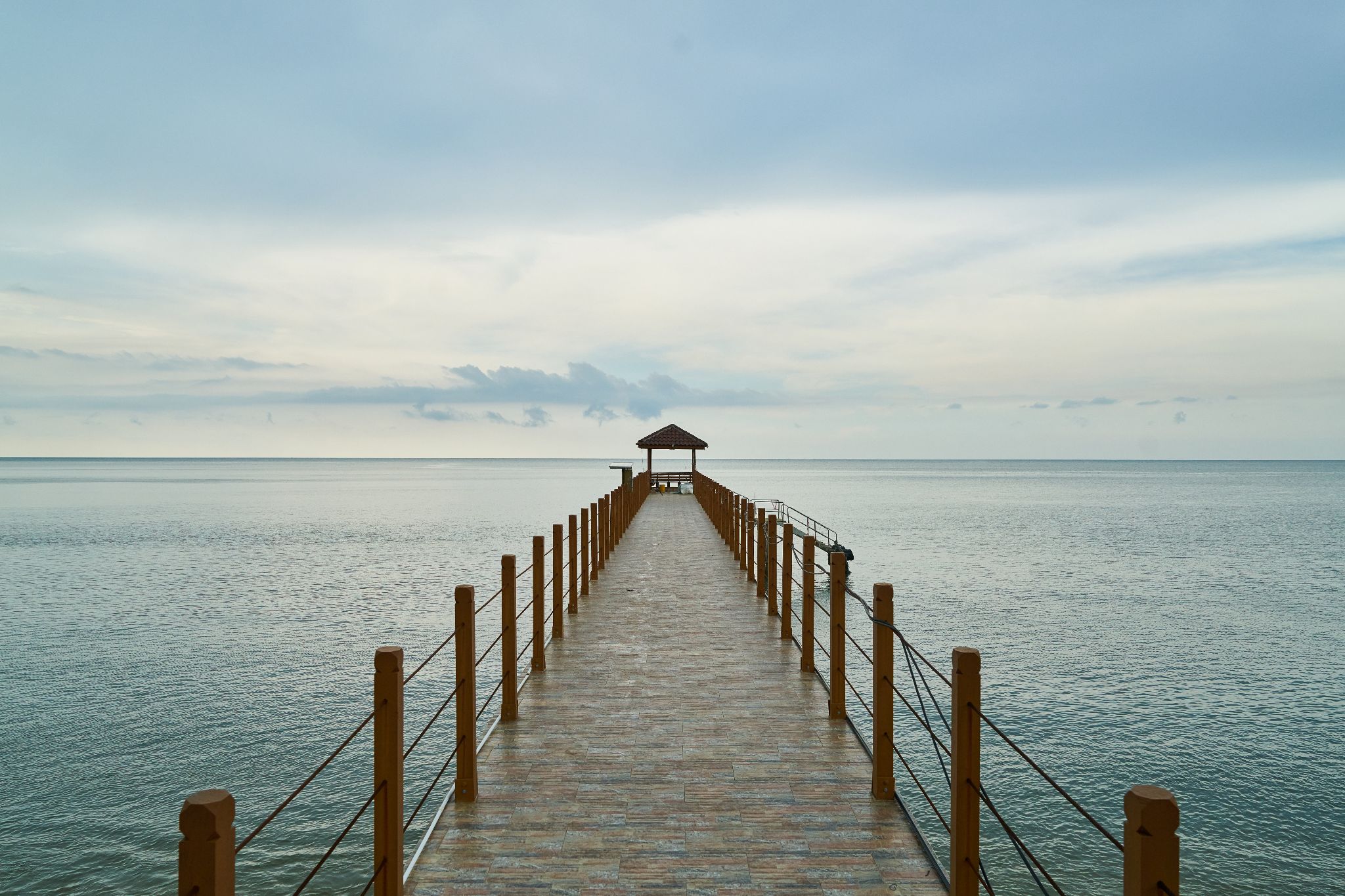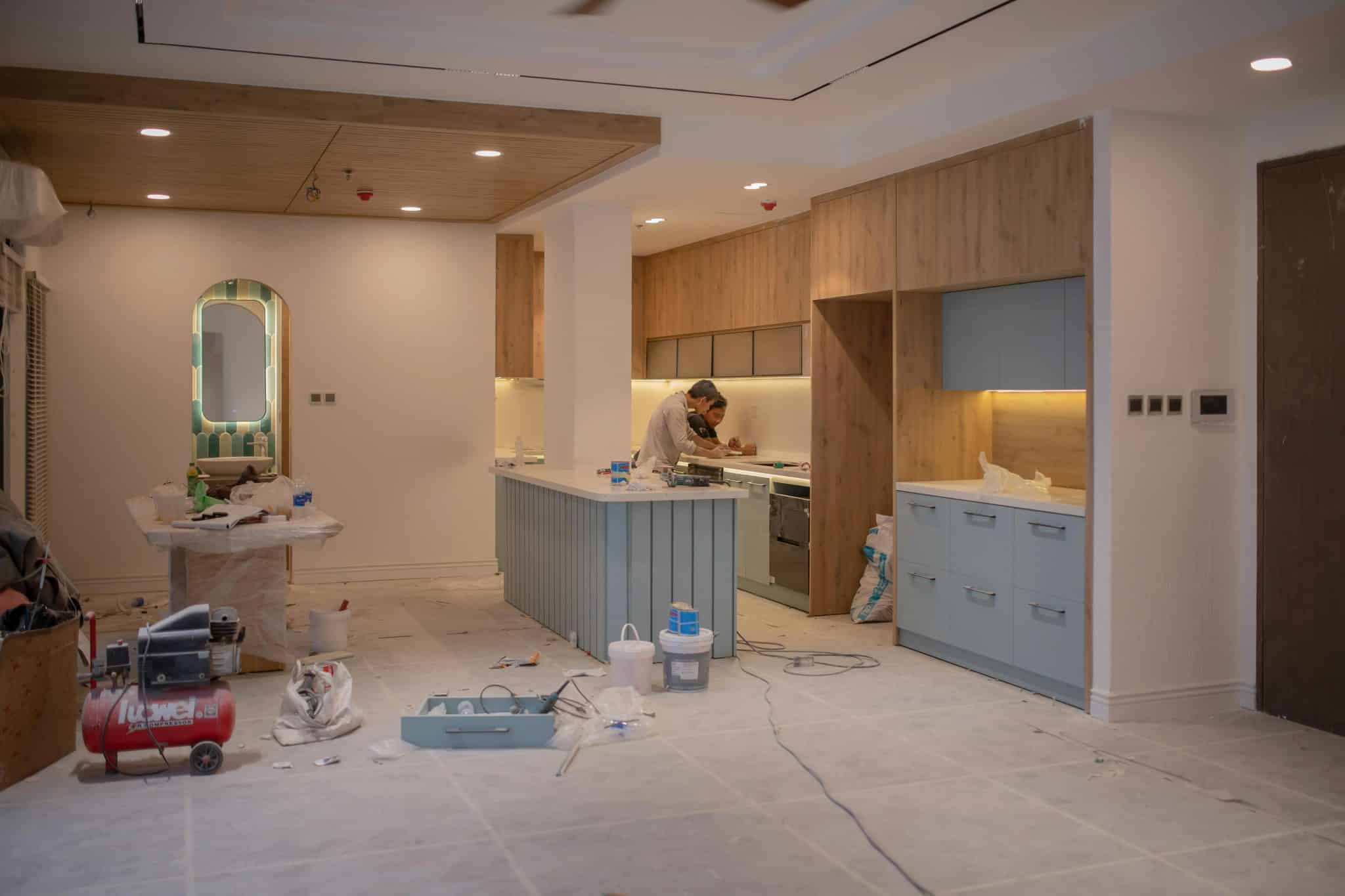Calculating the right amount of gravel for your driveway can be surprisingly tricky. Getting it wrong means either wasting money on excess material or facing the frustration of running short mid-project.
Neither scenario is ideal when you’re already investing time and effort into your property. I promise there’s a straightforward way to determine exactly how much gravel you need, which will save you time and money on your driveway project.
Saving you both time and money on your driveway project.
In this guide, I’ll be discussing why gravel driveways are a smart choice, the factors to consider when selecting gravel, the 7 best types of gravel for driveways, and some alternative gravel options worth considering.
Why Gravel Might Be the Best Thing You Can Do
When it comes to driveway materials, gravel stands out as a practical option for many homeowners. I’ve seen firsthand how this simple material can transform a property, and there are good reasons why it remains popular.
- First off, gravel is incredibly cost-effective. Compared to concrete or asphalt, you’ll spend significantly less per square foot. This makes it perfect if you’re working with a tight budget or have a longer driveway where other materials would break the bank.
- Installation couldn’t be simpler. No complicated equipment or specialized skills are needed, just proper grading and layering. This means less time between starting your project and enjoying the results.
- Maintenance is another area where gravel shines. Unlike solid surfaces that crack and require expensive repairs, gravel driveways are easy to touch up. Just add more material to low spots when needed.
- Drainage is perhaps the biggest practical advantage. Water passes right through the gravel instead of pooling on top or running off into your yard. This helps prevent erosion and flooding issues during heavy rain.
- Many homeowners also love gravel’s natural, rustic appearance. It blends beautifully with landscaping and gives properties a charming, countryside feel that paved surfaces can’t match.
Which Gravel Is Right for You? 7 True Options
Choosing the right gravel can make all the difference between a driveway that lasts for years and one that needs constant attention. I’ve researched the most popular options to help you make the best choice for your home. Here are the seven best types of gravel for driveways:
1. Crushed Stone
Best for: High-traffic driveways
Estimated Cost: $50-$70 per ton
Weather Resistance: Excellent
Crushed stone consists of stones about 1 inch in size. This option is incredibly durable and perfect if your driveway sees a lot of action.
The angular edges lock together naturally, creating a stable surface that won’t shift under car tires. It drains extremely well, making it ideal for areas with heavy rainfall.
2. Pea Gravel
Best For: Decorative and low-traffic areas
Estimated Cost: $30-$60 per ton
Weather Resistance: Moderate
Pea gravel’s name comes from its small, rounded shape. Available in various colors, it adds a decorative touch to any driveway.
The smooth texture makes it comfortable to walk on barefoot, but this same quality means it shifts more easily than angular gravel. It works best in low-traffic areas or as a top layer over a more stable base.
3. Quarry Process (QP)
Best For: Base layer or compact driveways
Estimated Cost: $40-$65 per ton
Weather Resistance: High
This mix of crushed stone and stone dust compacts extremely well, creating an almost concrete-like surface when properly installed.
It’s often used as a base layer for other gravel types, but also works great as a standalone driveway material. The stone dust fills gaps between larger pieces, making for a very stable surface.
4. Jersey Shore Gravel
Best For: Coastal or decorative driveways
Estimated Cost: $55-$75 per ton
Weather Resistance: Moderate
With its distinctive mix of white, tan, and gray stones, Jersey Shore gravel gives any property a beach-like feel.
It’s particularly popular in coastal areas, where it complements the surroundings. While beautiful, it’s somewhat softer than other options, so it works best in moderate-traffic driveways.
5. Marble Chips
Best For: Luxury or bright driveways
Estimated Cost: $75-$120 per ton
Weather Resistance: High
For a touch of luxury, marble chips offer unmatched brightness and elegance. They reflect sunlight beautifully and create a high-end look.
Though more expensive than other options, their durability makes them a good long-term investment. They maintain their color well over time, unlike some gravel types that can dull.
6. Crushed Granite
Best for: Rustic or farmhouse-style homes
Estimated Cost: $50-$70 per ton
Weather Resistance: Excellent
Crushed granite comes in earthy tones that blend perfectly with rustic or farmhouse aesthetics. It’s extremely hard and durable, able to withstand heavy vehicles and harsh weather conditions.
The material compacts well and stays in place better than many alternatives, requiring less frequent maintenance.
7. Recycled Concrete Gravel
Best for: Eco-friendly driveways
Estimated Cost: $25-$50 per ton
Weather Resistance: High
This environmentally friendly option gives new life to old concrete. It’s typically the most affordable choice while still offering excellent durability.
The light gray color brightens driveways and complements most home exteriors. It compacts extremely well and often becomes stronger over time as the material continues to bond.
Factors to Consider When Choosing Gravel for a Driveway
Before rushing to buy gravel for your driveway, take a moment to think about what will work best for your specific situation. Here are the key factors I always consider when helping homeowners choose the right gravel:
1. Size of the gravel
- Gravel size matters more than you might think. Larger stones (1-2 inches) create better drainage but can be uncomfortable to walk on.
- Smaller gravel (under 1/2 inch) feels nicer underfoot but might wash away more easily in heavy rain. Medium-sized gravel (3/4 to 1 inch) offers the best balance for most driveways.
2. Shape of the stones (angular vs rounded)
- The shape of your gravel affects its performance on your driveway. Angular, crushed stones lock together like puzzle pieces, creating a stable surface that stays put under tires.
- Rounded stones (like pea gravel) roll against each other, making a softer surface that’s nice to look at but tends to shift and spread over time.
3. Durability and weather resistance
- Some stone types hold up better than others in tough weather. Granite and quartzite remain strong through freeze-thaw cycles, while softer stones can break down faster.
- If you live somewhere with harsh winters or heavy rainfall, investing in weather-resistant gravel will save you money on replacements down the road.
4. Driveway slope and traffic load
- A steep driveway needs angular gravel that locks in place. Otherwise, you’ll find your driveway material at the bottom of the hill after a rainstorm.
- Similarly, if you have heavy vehicles or lots of traffic, you’ll need durable, larger stones that can handle the weight without getting crushed or pushed into the soil.
5. Budget considerations
- Gravel prices vary widely based on type, quality, and location. While recycled concrete might cost $25-50 per ton, decorative marble chips could run $75-120 per ton.
- Remember to factor in delivery costs, too. They can add significantly to your total, especially if you’re far from the supplier. Getting quotes from multiple suppliers can help you find the best deal.
Avoid Regrets: What to Think About Before Ordering
Looking beyond the usual suspects? Your driveway doesn’t have to be boring! Here are some head-turning alternatives that might be the perfect match for your home:
1. Lava Rock Gravel
Fire-forged and eye-catching, lava rock brings volcanic drama to your driveway. Its rusty red tones create a stunning contrast against greenery, while its lightweight, honeycomb structure makes it easy to handle.
Rainwater vanishes through this porous material like magic no more puddles! One homeowner told me, “My lava rock driveway became the talk of the neighborhood within days of installation.”
2. Slate Chips
Imagine pulling up to your home on a surface that looks like it belongs in a high-end spa retreat. Slate chips offer sophisticated blue-gray to charcoal tones that whisper “elegance” without shouting “I spent a fortune.”
These flat, angular pieces lock together like nature’s puzzle pieces, creating a stable surface that stays put even during heavy downpours.
3. River Rock
There’s something instantly calming about river rock, perhaps because each stone has been smoothed by decades of flowing water. Installing these rounded beauties creates the feeling of driving up a natural creek bed.
Available in soothing earth tones from tan to deep gray, river rock brings a slice of nature’s tranquility right to your doorstep.
4. Shell Gravel (for coastal regions)
Who needs a beach vacation when you can crunch across seashells every day? Shell driveways bring instant coastal charm with their light, bright surface that practically glows in the evening light.
As a bonus, these shells gradually break down and bind together over time, creating an increasingly stable surface – it’s like having a driveway that improves itself!
Wrapping It Up
So there you have it, everything you need to know about choosing the perfect gravel for your driveway. Whether you go with trusty crushed stone for high traffic, eye-catching marble chips for a luxury look, or eco-friendly recycled concrete to save some cash, the right choice depends on your specific needs.
Remember that factors like stone shape, size, and your driveway’s slope all play important roles in how well your gravel driveway performs over time.
Ready to get started? Measure your driveway carefully, consider the depth you’ll need, and call a few local suppliers to compare prices. Your perfect gravel driveway is just a few steps away!
Have you already installed a gravel driveway? Share your experience in the comments below!
Frequently Asked Questions
1. What is the Best Gravel Base for a Driveway?
The best gravel base for a driveway is quarry process (crusher run), which contains a mix of crushed stone and stone dust. It compacts well and creates a stable foundation for other layers.
2. How much Driveway will 1 ton of Gravel Cover?
One ton of gravel typically covers about 100 square feet at a 2-inch depth. For a standard 3-inch deep driveway, expect to cover roughly 65-70 square feet per ton.
3. How much Gravel does a Dump Truck Hold?
A standard dump truck holds about 10-14 tons of gravel. Smaller trucks carry 5-6 tons, while large tri-axle trucks can hold up to 20 tons.

